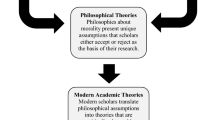Abstract
This study examines the effects of demographic characteristics on ethical perceptions. While earlier research has produced conflicting results regarding the predictive power of these variables, significant and definite insights were obtained with proper controls. The following predictors of ethical attitudes are examined: age, gender, marital status, education, dependent children status, region of the country and years in business, while controlling for job status. A nation-wide random sample of employees was used in obtaining a response rate of fifty-three percent (total n of 423). Indices of aspects of business ethical attitudes were constructed using factor analysis. Linear multiple regression analysis indicated the significant predictive variables. Age was found to be a most-significant predictor. Older workers had stricter interpretations of ethical standards. Gender and region predicted attitudes about job-discrimination practices only, with women and persons from the Midwest most strongly opposed to the practice. All the other variables proved to be unreliable ethics predictors.
Similar content being viewed by others
References
Akaah, I.: 1989, ‘Difference in Research Ethics Judgments Between Male and Female Majority Professionals’,Journal of Business Ethics 8, pp. 375–81.
Arlow, P. and Ulrich, T.: 1980, ‘Business Ethics, Social Responsibility and Business Students: An Empirical Comparison of Clark's Study’,Akron Business and Economic Review 11(3), pp. 17–23.
Babbie, E.: 1986,The Practice of Social Research, 4th ed. Belmont, CA, Wadsworth Publishers.
Beltramini, R., Peterson, R., and Kozmetsky, G.: 1984, ‘Concerns of College Students Regarding Business Ethics’,Journal of Business Ethics 3, pp. 195–200.
Bloom, R.: 1976, ‘Morally Speaking, Who Are Today's Teachers?’,Phi Beta Kappan 57, pp. 624–25.
Boyd, D. P.: 1981, ‘Improving Ethical Awareness Through the Business and Society Course’,Business and Society 20(2), pp. 27–31.
Brenner, O.: 1988, ‘Relations of Age and Education to Managers' Work Values’,Psychology Report 64, pp. 639–42.
Brenner, S. and Molander, E.: 1977, ‘Is the Ethics of Business Changing?’,Harvard Business Review 55, pp. 55–71.
Burnett and Karson: 1987, ‘Personal Values and Business Decisions’,Journal of Business Ethics 6, pp. 371–82.
Cain, G.: 1966,Married Women in the Labor Force, Chicago, IL, University of Chicago Press.
Ferrell, O. and Skinner S.: 1988, ‘Ethical Behavior and Bureaucratic Structure in Marketing Research Organization’,Journal of Marketing Research 25, pp. 103–9.
Hegarty, H. and Sims, H.: 1978, ‘Some Determinants of Unethical Decision Behavior: An Experiment’,Journal of Applied Psychology 63, pp. 451–7.
Kahn, A., Nelson, and Gaeddert: 1972, ‘Reactions to Generosity or Stinginess from an Intelligent or Stupid Work Partner’,Journal of Personality and Social Psychology 21, pp. 116–23.
Kidwell, J., Stevens, R. and Bechke, A.: 1987, ‘Differences in Ethical Perceptions Between Male and Female Managers, Myth or Reality’,Journal of Business Ethics 6, pp. 451–7.
Lerner, M.: 1980,The Belief in a Just World, New York, Plenum.
Major, B. and Deaux, K.: 1980,Equity and Justice in Social Behavior, Academic Press.
Mudrack, P.: 1989, ‘Age-Related Differences in Machiavellianism in Adult Sample’,Psychology Report, Part 2,64, pp. 1947–50.
Munhall, P.: 1980, ‘Moral Reasoning Levels of Nursing Students’,Image 12(3), pp. 57–61.
Ondrack, D. A.: 1973, ‘Emerging Occupational Values: A Review and Some Findings’,Academy of Management Journal 16, pp. 423–32.
Posner, B. Z. and Schmidt, W.: 1984, ‘Values and the American Manager: An Update’,California Management Review 26(3), pp.202–16.
Purcell, T.: 1977, ‘Do Courses in Business Ethics Pay Off?’,California Management Review 19, pp. 50–58.
Rest, J. R.: 1979, ‘The Impact of Education on Moral Judgment Development’,Technical Report −5, Minneapolis, MN, University of Minnesota Press.
Rest, J. R. and Thoma, S.: 1985, ‘Relation of Moral Judgment Development to Formal Education’,Developmental Psychology 21(4), pp. 709–14.
Troy, L. and Sheflin, N.: 1985, Union Sourcebook 1st ed., Industrial Relations Data & Information Service, West Orange, New Jersey, pp. 1–4, 7–8.
U.S. Bureau of Labor: 1990, Chicago, Illinois Regional Office Bulletin.
VenKatesh, A.: 1988, ‘Changing Roles of Women: A Life-Style Analysis’,Journal of Consumer Research 7, pp. 189–97.
Vitell and Ferstervand: 1987, ‘Business Ethics: Conflicts, Practices and Beliefs of Industrial Executives’,Journal of Business Ethics 6, pp. 111–22.
Wald, P.: Breaking the Glass Ceiling: Will We Ever Rid the Legal Profession of “the Ugly Residue of Gender Discrimination?”, Human Rights, Spring, 1989, 16: 40–3.
Wood, J., Longenecker, J., McKinney, J. and Moore, C.: 1988, ‘Ethical Attitudes of Students and Business Professionals: A Study of Moral Reasoning’,Journal of Business Ethics 7, pp. 249–257.
Author information
Authors and Affiliations
Additional information
Paul Serwinek is a research affiliated with Wayne State University. He has done extensive research in business management and consulting work in the field of insurance agency employee job satisfaction.
SPSS PC Plus Computer Program used.
Rights and permissions
About this article
Cite this article
Serwinek, P.J. Demographic & related differences in ethical views among small businesses. J Bus Ethics 11, 555–566 (1992). https://doi.org/10.1007/BF00881448
Issue Date:
DOI: https://doi.org/10.1007/BF00881448




